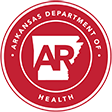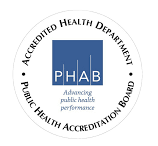Alpha-Gal Syndrome
Galactose-alpha-1, 3-galactose, or Alpha-Gal for short, is a delayed allergy to mammal meat affecting a growing number of the population. This allergy is initially caused by a tick bite. Since the reaction to eating mammal meat is delayed by several hours, the proper diagnosis is often missed or misdiagnosed. People who are afflicted with the Alpha-Gal allergy have to be constantly vigilant about the ingredients they consume because an allergic reaction can be severe and life-threatening.
Delayed allergic reactions to red meat have been shown to be caused by several tick species worldwide (e.g. Ixodes ricinus in Europe and Ixodes holocyclus in Australia), with evidence suggesting that the Lone star tick (Amblyomma americanum) is the primary cause of reactions in the U.S. Lone Star ticks carry a sugar called alpha-gal, which is also found in red meat, but not in people. Normally, alpha-gal in meat poses no problems for people. But when a Lone Star tick bites a person, it transfers alpha-gal into the bloodstream. As a result, the person's body produces antibodies to fight the sugar. The next time that person eats meat from a mammal (including beef, pork, lamb, venison, goat, and bison) the meat triggers the release of histamine, a compound found in the body that causes allergic symptoms like hives, itching, and even anaphylaxis (a reaction that leads to sudden weakness, swelling of the throat, lips and tongue, difficulty breathing and/or unconsciousness). Fish, turkey, and chicken are not mammals, so they don’t have alpha-gal.
Most allergic reactions to foods occur almost immediately, but red meat allergic reactions can occur up to eight hours after a person eats meat. Often the reaction can be in the middle of the night and the connection to something they ate hours ago isn’t made easily.
The allergy most often occurs in the central and southern United States, which corresponds to the distribution of the Lone Star tick. In the Southern United States, where the tick is most prevalent, allergy rates are 32% higher than elsewhere. However, as doctors are not required to report the number of patients suffering the alpha-gal allergies, the true number of affected individuals is unknown.


